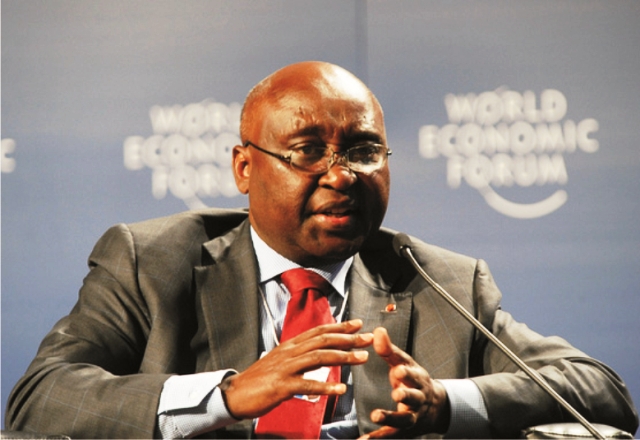Business
AfDB Plans $175m For Agricultural Transformation In North-West Region

The Country Director,
African Development Bank (AfDB), Dr Ousmane Dore, has earmarked 175 million dollars for Agricultural Transformation Agenda Support Programme (ATASP-I) as instrument for consolidating the bank’s investments in Nigerian agricultural sector.
The latest edition of the bank’s newsletter, issued by its Nigerian Country Office recently in Abuja quoted Dore as saying this at a meeting held in Kaduna Government House recently.
He said that in recognition of its ongoing effort to transform agriculture from subsistence to agribusiness, AfDB was invited by the leadership of Nigeria’s North-West region to review the agricultural development strategy for the region.
Dore added that another aim of the invitation was for the bank to give an overview of its ongoing and upcoming interventions in agriculture in Nigeria as they relate to the seven North-West states.
“In line with the agenda of the meeting, we (bank) have outlined the AgriculturalTransformation Agenda Support Programme (ATASP-I) of 175 million dollars as the main instrument for consolidating bank investments in Nigeria agricultural sector.
“Under this programme, the bank has established four Staple Crops Processing Zones (SCPZs), which cover four out of the seven North-West states – Kebbi, Sokoto, Kano and Jigawa,” Dore said.
Dore also outlined two upcoming projects totalling 500 million dollars.
He said that 300 million dollars was on Empowering Novel Agri-Business-Led Employment (ENABLE) Youth Programme and 200 million dollars on Phase II of the ATASP.
Dore said that the forum recognised that the bank had been providing financial support to SMSE through lines of credit to several commercial banks as well as through the policy banks like Bank of Industry and NEXIM.
He added that the forum also appreciated the bank’s technical assistance to the Bank of Agriculture through grants.
Dore said that the governors expressed gratitude to the bank and its president for supporting the region.
He said that they also gave the assurance of working closely with the bank to finalise and operationalise their agriculture strategies.
Transport
Automated Points Concession : FAAN Workers Gave 72hrs To Revise Decisions In PH

Transport
FAAN Announces Pick-Up Points for Go-Cashless Cards

Business
Fidelity Bank To Empower Women With Sustainable Entrepreneurship Skills, HAP2.0
-

 News4 days ago
News4 days agoAmend Constitution To Accommodate State Police, Tinubu Tells Senators
-

 Politics4 days ago
Politics4 days agoSenate Urges Tinubu To Sack CAC Boss
-
Business4 days ago
Crisis Response: EU-project Delivers New Vet. Clinic To Katsina Govt.
-
Business4 days ago
President Tinubu Approves Extension Ban On Raw Shea Nut Export
-

 News4 days ago
News4 days agoDisu Takes Over As New IGP …Declares Total War On Corruption, Impunity
-
Business4 days ago
President Tinubu Extends Raw Shea Nuts Export Ban To 2027
-
Business4 days ago
Fidelity Bank To Empower Women With Sustainable Entrepreneurship Skills, HAP2.0
-
Sports4 days ago
NDG: Rivers Coach Appeal To NDDC In Talent Discovery

